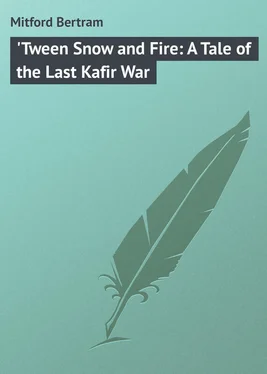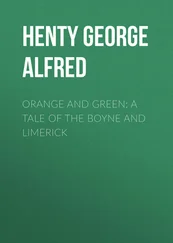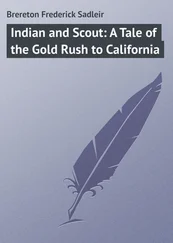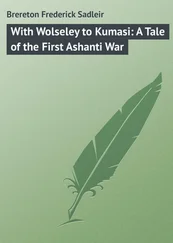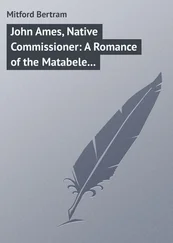Bertram Mitford - 'Tween Snow and Fire - A Tale of the Last Kafir War
Здесь есть возможность читать онлайн «Bertram Mitford - 'Tween Snow and Fire - A Tale of the Last Kafir War» — ознакомительный отрывок электронной книги совершенно бесплатно, а после прочтения отрывка купить полную версию. В некоторых случаях можно слушать аудио, скачать через торрент в формате fb2 и присутствует краткое содержание. Издательство: Иностранный паблик, Жанр: foreign_prose, на английском языке. Описание произведения, (предисловие) а так же отзывы посетителей доступны на портале библиотеки ЛибКат.
- Название:'Tween Snow and Fire: A Tale of the Last Kafir War
- Автор:
- Издательство:Иностранный паблик
- Жанр:
- Год:неизвестен
- ISBN:нет данных
- Рейтинг книги:5 / 5. Голосов: 1
-
Избранное:Добавить в избранное
- Отзывы:
-
Ваша оценка:
- 100
- 1
- 2
- 3
- 4
- 5
'Tween Snow and Fire: A Tale of the Last Kafir War: краткое содержание, описание и аннотация
Предлагаем к чтению аннотацию, описание, краткое содержание или предисловие (зависит от того, что написал сам автор книги «'Tween Snow and Fire: A Tale of the Last Kafir War»). Если вы не нашли необходимую информацию о книге — напишите в комментариях, мы постараемся отыскать её.
'Tween Snow and Fire: A Tale of the Last Kafir War — читать онлайн ознакомительный отрывок
Ниже представлен текст книги, разбитый по страницам. Система сохранения места последней прочитанной страницы, позволяет с удобством читать онлайн бесплатно книгу «'Tween Snow and Fire: A Tale of the Last Kafir War», без необходимости каждый раз заново искать на чём Вы остановились. Поставьте закладку, и сможете в любой момент перейти на страницу, на которой закончили чтение.
Интервал:
Закладка:
This time, as the orator paused, there was no restraining the fierce excitement of his hearers. Each warrior named, who had greeted the mention of himself with a low, but emphatic “ há ” – now sprang to his feet. No further example was needed. Again, the wild rhythm of the war-song rose upon the night; again the fierce thunder-roll of the tread of hundreds of feet shook the ground. Again the circle of firelight was alive with grim, threatening forms, swaying in measured time, to the unearthly chant, to the accompaniment of the shaking of fantastic adornments, to the quivering rattle of assegai hafts. For some minutes this continued – then when the excitement was almost at its height, a mysterious signal was given and the whole wild crowd dropped quickly into its listening attitude again.
“Such is the word of the Amanglezi,” went on the speaker. “Now hear the word of Sarili, your father, the Paramount Chief, the father of all the children of Xosa. Hear the word of the Great Chief conveyed by the mouth of Hlangani, the herald – ‘Lo, the time has come when we must unite in the strength of brethren. The Amanglézi are urging our very dogs on to provoke us. The Amafengu are located on our borders, to taunt and jeer at our young men – to lure our young women over into their kraals that the very name of Gcaléka may be debased and defiled. Not a day passes that this does not happen. Why do we not revenge this? Why do we not execute a sudden and fearful vengeance upon these dogs who spit at our name and nation? We dare not. The Amanglézi say: “Your dogs are now our dogs. Touch them and we shall send armies of soldiers and you will be eaten up” – But, dare we not? Dare we not? Answer me, all ye children of the race of Xosa! I, Sarili, your father, call upon you – I, Sarili, your chief. Answer! Show that the war-fire of our free and warrior race is not dead. It has been smouldering for many years, but it is not dead. It is ready to break forth as the destroying lightning leaps from the black thunder-cloud. It is ready to blaze forth in its strength and to consume all within its reach.
“‘Where is my father, Hintza? Where is he who was lured into the white man’s camp by fair promises and then shot down? Do I not hear his spirit calling unto me day and night. I cannot sleep, for the spirit of my father is crying for vengeance. It is crying day and night from the depths. Yet, not to me only. Who was Hintza? My father, yet not my father only. The father of all the sons of Xosa!
“‘Lo, the white Governor has summoned me, your chief, to meet him. He has invited me, your chief, with fair promises to visit him at his camp. Shall I go, that I, Sarili, may meet with the same dealing that laid low my father, Hintza? I will, indeed, go, but it will be with the whole array of the fighting men of the Amaxosa at my back.
“‘Hear my “word,” my children of the House of Nteya, pakati of the race of Ngqika. Hear my “word” as spoken through the mouth of Hlangani, my herald. Receive these oxen as a present from your father to his children. Eat them, and when you have eaten and your hearts are strong, stand prepared. Let the war-cry roll through the mountains and valleys of our fair land. Let the thunder of your war-dances shake the earth as the reeds by the water side quiver beneath the rushing of the storm wind. Let the trumpet tongues of your war-fires gleam from the mountain tops – tongue roaring to tongue – that the Amanglezi may hear it and tremble; for the spirit of Hintza, my father, which has slumbered for years, is awake again and is crying for vengeance – is crying and crying aloud that the time has come.’”
The speaker ceased. A dead silence fell upon his hearers – a weird silence upon that tumultuous crowd crouching in eager expectancy in the red firelight. Suddenly, upon the black gloom of the night, far away to the eastward, there gleamed forth a streak of flame. Then another and another. A subdued roar ran around the circle. Then, as by magic, a crimson glare fell upon the serried ranks of expectant listeners, lighting up their fantastic war panoply as with the light of day. From the hill top above the kraal there shot up a great tongue of red flame. It leaped high into the velvety blackness of the heavens. Splitting up into many a forking flash it roared in the air – the gleaming rays licking up into a cloud of lurid smoke which blotted out the stars in its reddening folds. The distant war signal of the Gcaléka chieftain was answered.
“Ha!” cried Hlangani, in a voice of thunder. “Ha! Now will the heart of your father, Sarili, be glad. Now have ye proved yourselves his children indeed, oh, sons of Ngqika! Now have you proved yourselves men, for the trumpet tongues of your war-flames are crying aloud – tongue roaring to tongue upon the wings of the night.”
With the quickness of lightning the warriors had again thrown themselves into formation, and now worked up to a pitch of uncontrollable excitement, the unearthly cadence of the war-song rose into a fiendish roar, and the thunder of the demon dance rolled and reverberated among the hills, while lighting up the fierce array of grim, frenzied figures in its brooding glare, the huge beacon, high above on the hilltop, blazed forth sullenly upon the night in all its menacing and destructive significance.
Suddenly, as if by magic, the mad orgy of the savages was suspended. For advancing into their very midst – fearlessly, boldly, contemptuously, even – rode a solitary horseman – a white man, an Englishman.
Chapter Seven.
In the Lion’s Den
Every eye was bent upon the new arrival. With a quick, instinctive movement the savages closed around the foolhardy Englishman. There was a scowl of deadly import upon each grim face. Hundreds of assegais were poised with a quiver of suppressed eagerness. The man’s life seemed not worth a moment’s purchase.
“Out of my way, you schepsels !” he cried roughly, urging his horse through the sullen and threatening crowd, as though so many hundreds of armed and excited barbarians worked up to the highest pitch of blood-thirstiness were just that number of cowering and subservient slaves. “Out of my way, do you hear? Where is Nteya? I want Nteya, the chief. Where is he?”
“Here I am, umlúngu (White man). What do you want with me?” answered Nteya – making a rapid and peremptory signal to restrain the imminent resentment of his followers. “Am I not always here, that you should break in upon me in this violent manner? Do I go to your house, and ride up to the door and shout for you as though you were stricken with sudden deafness?”
The chief’s rebuke, quiet and dignified, might have carried some tinge of humiliation to any man less overbearing and hot-headed than Tom Carhayes, even as the low growl of hardly contained exasperation which arose from the throng might have conveyed an ominous warning. But upon this man both were alike thrown away. Yet it may be that the very insanity of his fool-hardiness constituted his safety. Had he quailed but a moment his doom was sealed.
“I didn’t come here to hold an indaba ,” (Talk – palaver) he shouted. “I want my sheep. Look here, Nteya. You have put me off very cleverly time after time with one excuse or another. But this time you are pagadi (Cornered). I’ve run you to earth – or rather some of those schepsels of yours. That young villain Goníwe has driven off thirty-seven of my sheep, and two of your fellows have helped him. I’ve spoored them right into your location as straight as a line. Now?”
“When was this, Umlilwane?” said Nteya, imperturbably.
“When? When? To-night, man. This very night, do you hear?” roared the other.
Читать дальшеИнтервал:
Закладка:
Похожие книги на «'Tween Snow and Fire: A Tale of the Last Kafir War»
Представляем Вашему вниманию похожие книги на «'Tween Snow and Fire: A Tale of the Last Kafir War» списком для выбора. Мы отобрали схожую по названию и смыслу литературу в надежде предоставить читателям больше вариантов отыскать новые, интересные, ещё непрочитанные произведения.
Обсуждение, отзывы о книге «'Tween Snow and Fire: A Tale of the Last Kafir War» и просто собственные мнения читателей. Оставьте ваши комментарии, напишите, что Вы думаете о произведении, его смысле или главных героях. Укажите что конкретно понравилось, а что нет, и почему Вы так считаете.
